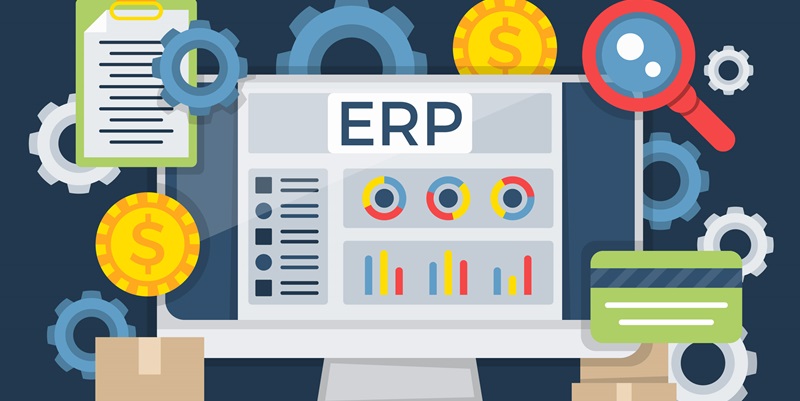In today’s highly competitive manufacturing landscape, it is crucial for companies to adopt efficient systems that streamline operations and ensure optimal productivity. The integration of Manufacturing Execution Systems (MES) with Enterprise Resource Planning (ERP) offers substantial benefits to manufacturers, optimizing production coordination and enhancing alignment in supply chain, inventory, sales, and customer service. This article explores the various advantages that arise from the seamless integration of MES and ERP systems in manufacturing processes.
The Importance of MES and ERP Integration for Manufacturers
Efficient coordination of various manufacturing activities is crucial for organizations to achieve operational excellence. The integration of MES and ERP systems provides a solid foundation for unified decision-making and execution across different functional areas. By bringing together key data from production, sales, and inventory management, manufacturers gain a holistic view of their operations, enabling informed decision-making and efficient resource allocation.
Benefits of MES and ERP Integration
MES integration ensures seamless coordination of shop floor activities, bridging execution gaps, and optimizing production processes. By combining real-time data from MES and ERP systems, manufacturers can monitor and control production activities, track work in progress, and streamline material flow. This integration enables efficient collaboration between different departments and suppliers, enhancing the synchronization of activities in the supply chain.
One of the critical advantages of MES and ERP integration is the ability to overcome challenges in demand forecasting. By leveraging real-time data from MES, manufacturers can accurately predict demand, preventing disruptions in cash flow and ensuring timely deliveries. The integration of MES with ERP systems enables efficient planning and production scheduling, leading to significant cost savings.
Market demands are constantly evolving, and manufacturers need to adapt swiftly to fluctuations in production requirements. MES integration enhances the ability to respond quickly to changing production demands, enabling efficient adaptation to market fluctuations and customer requirements. By leveraging real-time data from MES and ERP systems, manufacturers can dynamically adjust order processing and production schedules, ensuring optimal production efficiency.
The integration of ERP and MES systems amalgamates data from various management functions with manufacturing data, providing real-time traceability and transparency throughout the entire production process. This comprehensive visibility empowers manufacturers to track and trace products at every stage, facilitating effective quality control, reducing errors, and ensuring compliance with industry regulations.
Enhancements in production efficiency and quality
The integration of MES and ERP systems offers real-time visibility, enabling swift issue resolution, tracking supplies, and effective maintenance prediction. Manufacturers can proactively identify and address production bottlenecks, minimize machine downtime, and optimize overall equipment effectiveness. This integration also facilitates effective tracking of supplies, reducing material waste and enhancing operational efficiency.
The integration of MES and ERP systems enhances material usage and product quality. By leveraging accurate and real-time data, manufacturers can optimize the utilization of raw materials, thus reducing waste and costs. Additionally, the integration enables real-time monitoring of quality parameters, allowing for timely interventions to maintain product quality standards.
Strengthening customer relationships
MES and ERP integration empowers businesses to deliver real-time production updates to customers, fostering transparency and trust. Manufacturers can provide accurate information on order status, production timelines, and delivery schedules, ensuring customers are informed throughout the production process.
The transparency enabled by MES and ERP integration fosters trust between manufacturers and customers. With enhanced visibility into production processes, customers gain confidence in the reliability and quality of the products they purchase. This transparency also opens avenues for collaboration and customization, further strengthening customer relationships.
Flexibility in production priorities
The integration of MES and ERP systems enables flexible adaptation to shifting production priorities. By dynamically adjusting order processing, manufacturers can ensure production schedules align with current demands and market fluctuations. This agility allows organizations to capitalize on market opportunities swiftly and efficiently.
MES and ERP integration empowers manufacturers to align production schedules with market fluctuations. Real-time data from MES systems provide insights into demand patterns, enabling companies to adjust production volumes and prioritize specific product lines accordingly. This synchronization improves operational efficiency by avoiding overstocking or underutilization of resources.
Optimization of Resource and Inventory Management
MES and ERP integration empowers organizations to optimize resource and inventory management, leading to cost reductions and enhanced operational efficiencies. Real-time data from MES systems enables accurate forecasting, ensuring optimal inventory levels and minimizing holding costs. Additionally, the integration enables efficient resource planning, reducing idle time and improving resource utilization.
Coordination between shop floor operations and customer service
Efficient coordination between shop floor operations and customer service is key to achieving customer satisfaction. MES and ERP integration facilitates seamless communication between production and customer service departments. Real-time data sharing enables customer service representatives to provide accurate updates on order status, resolve issues promptly, and address customer queries effectively. This harmonization enhances production efficiency and customer satisfaction.
The integration of MES and ERP systems offers manufacturers a myriad of benefits, optimizing production coordination, enhancing supply chain alignment, and improving overall operational efficiency. By leveraging real-time data from MES and ERP systems, manufacturers gain comprehensive visibility into their operations, allowing them to make informed decisions, meet customer demands efficiently, and ensure optimal resource utilization. As the manufacturing industry continues to evolve, the seamless integration of MES and ERP remains a vital strategy for companies seeking to maximize efficiency and stay competitive in today’s dynamic marketplace.

